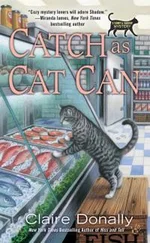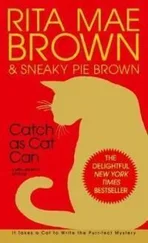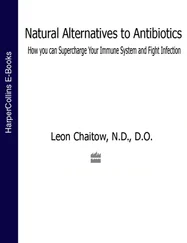I couldn’t very well refuse. I was chatting with two nurses on my shift at the time the request was made. “I’ll help you, Dr. Williams,” volunteered the one, Jana Stern, a dedicated RN who was attending medical school herself and hoped to be a pediatrician specializing in newborns.
She led the way to the nursery and I reluctantly followed. I had sometimes paused outside the plate-glass window of the nursery to look at the tiny, wrinkled newborns in their incubators or box-like bassinets, but I’d never gone inside. They reminded me of so many mewling kittens, and I’ve always been slightly leery of cats, even little ones.
I started to shove open the door of the nursery and Nurse Stern grabbed my arm. “Doctor!” she gasped.
“Whaf s wrong?” I asked, looking around desperately for one of my trusty interns.
“You can’t go in like that!” she scolded me. “You have to scrub up and put on a smock and mask. You know that!” She handed me a green jacket and a sterile mask.
I grimaced. “Help me on with these damned things,” I growled. “Why do we need a mask? I’m only gonna look at the kid, not stick him up.” I realized why I needed a mask. I was trying to cover. And I did. She clucked. “Honest, Doctor, you’re too much at times,” she said in exasperated tones.
It was a baby boy, still glistening redly from his rough passage through the narrow channel of life. He regarded me with a lugubrious expression. “Okay, kid, take a deep breath and milk it back,” I commanded in mock military tone, starting to apply my stethoscope to the baby’s chest.
Nurse Stern grabbed my arm again, laughing. “Doctor! You can’t use that stethoscope on a newborn! You use a pediatrics stethoscope.” She busted out and returned with a smaller version of the one I held. I hadn’t known they came in sizes. “Will you quit fooling around, please? We’ve got a lot of work to do.”
I stepped back and waved at the baby. “Tell you what, Dr. Stern. You examine the boy. I’d like to check your style.”
She rose to the bait. “Well, I can do it,” she said, as if I’d insulted her, but still visibly pleased. She applied the stethoscope, then draped it around her neck and proceeded to manipulate the baby’s arms, legs and hips, peered into his eyes, ears, mouth and anus and ran her hands over his head and body. She stepped back and stared at me challengingly. “Well?”
I leaned down and kissed her on the forehead. “Thank you, Doctor, you’ve saved my only son,” I said with mock tearfulness.
The baby had lost his doleful look. No one is really certain if newborn infants have thoughts or are aware of what is going on around them. No one but me, that is. That kid knew I was a phony. I could see it in his face.
I examined several newborns after that. I never knew what I was doing, of course, but, thanks to Nurse Stern, I knew how to do it.
But I still spent a lot of time in my seventh-floor linen closet.
There were times, too, I’m sure, when my tomfool demeanor irked people. Like the night, in the eleventh month of my impersonation, when a nurse rushed up to the nursing station where I was writing my undecipherable comments on charts. “Dr. Williams! We’ve got a blue baby in 608! Come quickly.” She was a new nurse, barely a month out of school. And I’d nipped her with one of my practical jokes. Her first night on duty I’d told her to “bring me a bucket of steam to the nursery. I want to sterilize the place.” She’d eagerly rushed off to the boiler room, where a helpful intern had steered her.
Oddly enough, in the eleven months I’d posed as a doctor, I’d never heard the term “blue baby.” I thought she was getting back at me.
“I’ll be right along,” I said, “but first I’ve got to check the green baby in 609.” When I made no move, she rushed off, shouting for one of the interns. I stepped around the corner and consulted my medical dictionary. I learned a blue baby was one suffering from cyanosis, or lack of oxygen in the blood, usually due to a congenital heart defect. I took off for Room 608, and was relieved to find one of my interns had bailed me out again. He was adjusting a portable oxygen tent around the infant. “I’ve called his doctor. He’s on his way. I’ll handle it until he gets here, if it’s all right with you, sir.”
It was all right with me. The incident shook me. I realized I was playing a role that had reached its limits. I’d been lucky so far, but I suddenly knew some child could die as a result of my impersonation. I determined to seek out Colter and resign, and I determined not to be swayed by any entreaties.
He sought me out instead.
“Well, Frank, you can go back to being a playboy,” he said cheerfully. “We’ve got a new resident supervisor. Got him from New York. He’ll be here tomorrow.”
I was relieved. I dropped around the next day to pick up my final paycheck and wasn’t at all disappointed when I didn’t meet my replacement. I was leaving the hospital when I encountered Jason, the elderly janitor on the midnight-to-eight shift.
“You’re coming to work a little early, aren’t you, Jason?” I asked.
“Workin‘ a double shift today, Doctor,” said Jason.
“If you haven’t heard, Jason, I won’t be around anymore,” I said. “They finally found a replacement.”
“Yes, sir, I heard,” said Jason. He looked at me quizzically. “Doctor, can I ask you somethin‘?”
“Sure, Jason. Anything.” I liked him. He was a nice old man.
He drew a deep breath. “Doctor, you never knowed it, but I always spent my relaxin‘ time up there on the seventh floor. And, Doctor, for nearly a year now I been seein’ you go in a linen closet up there. You never go in with anythin‘, and you never come out with anythin’. I know you don’t drink, and, Doctor, there ain’t nothin‘ in that closet, nothin’! I done searched it a dozen times. Doctor, my curiosity’s about to drive me to drink. Just what did you do in that linen closet, Doctor? I won’t tell nobody, I swear!”
I laughed and hugged him. “Jason, I was contemplating my navel in that closet. That’s all. I swear it.”
But I know he never believed me. He’s probably still inspecting that closet.
CHAPTER FIVE. A Law Degree Is Just An Illegal Technicality
A week after I severed my connection with the hospital, my lease at Balmorhea came up for renewal and I decided to leave Atlanta. There was no compulsion for me to go; at least I felt none, but I thought it unwise to stay. The fox who keeps to one den is the easiest caught by the terriers, and I felt I had nested too long in one place. I knew I was still being hunted and I didn’t want to make it easy for the hounds.
I later learned that my decision to leave Atlanta was an astute one. About the same time, in Washington, D.C., FBI Inspector Sean O’Riley was ordered to drop all his other cases and concentrate solely on nabbing me. O’Riley was a tall, dour man with the countenance of an Irish bishop and the tenacity of an Airedale, an outstanding agent dedicated to his job, but an eminently fair man in all respects.
I came to admire O’Riley, even while making every effort to thwart his task and to embarrass him professionally. If O’Riley has any personal feelings concerning me, I am certain animosity is not among such emotions. O’Riley is not a mean man.
Of course, I had no knowledge of O’Riley’s existence, even, at the time I vacated Atlanta. Save for the young special agent in Miami, and the Dade County officers I’d encountered there, the officers on my case were all phantoms to me.
I decided to hole up for a month or so in the capital city of another southern state. As usual, I was prompted in my choice by the fact that I knew an airline stewardess there. I was yet to find a more delightful influence on my actions than a lovely woman.
Читать дальше











